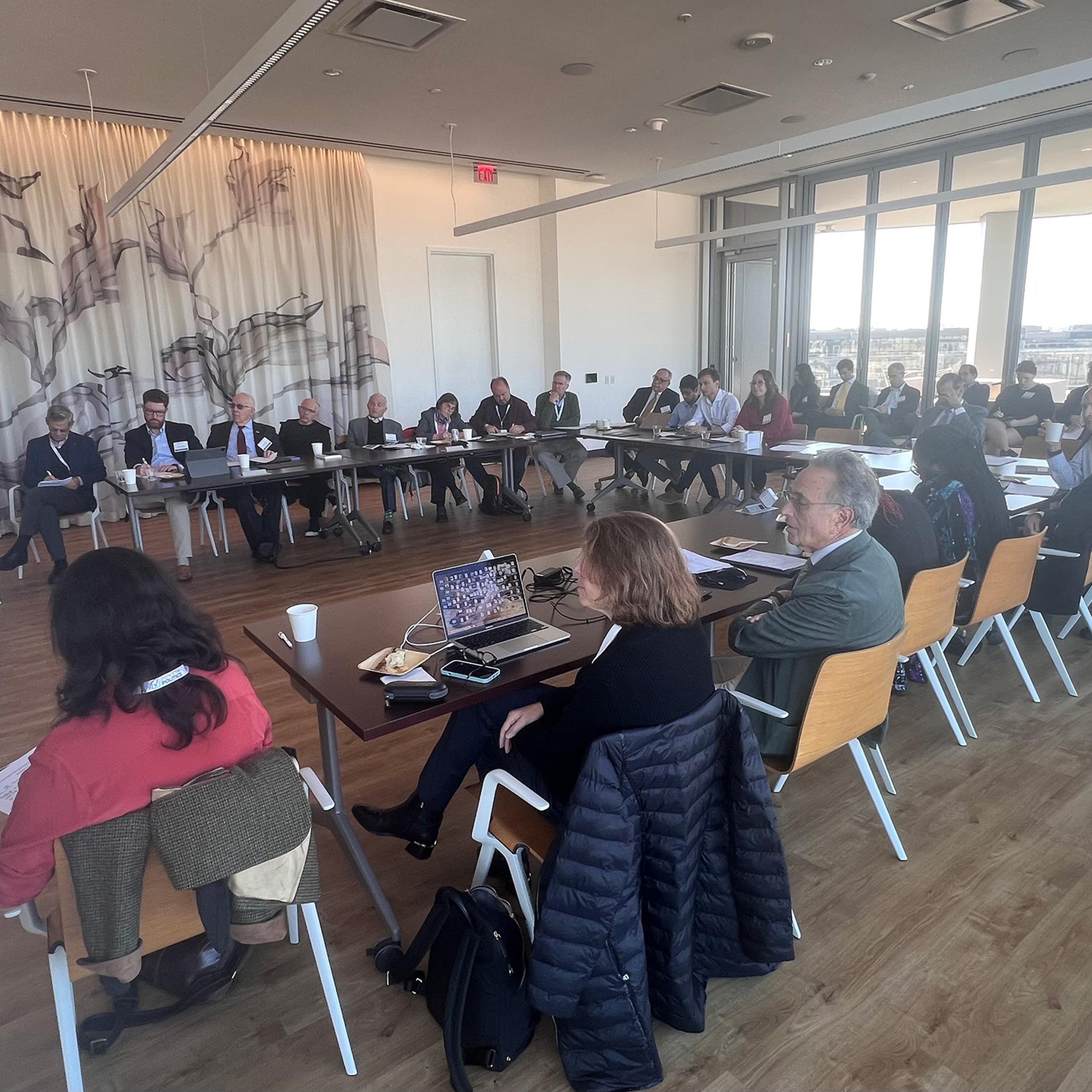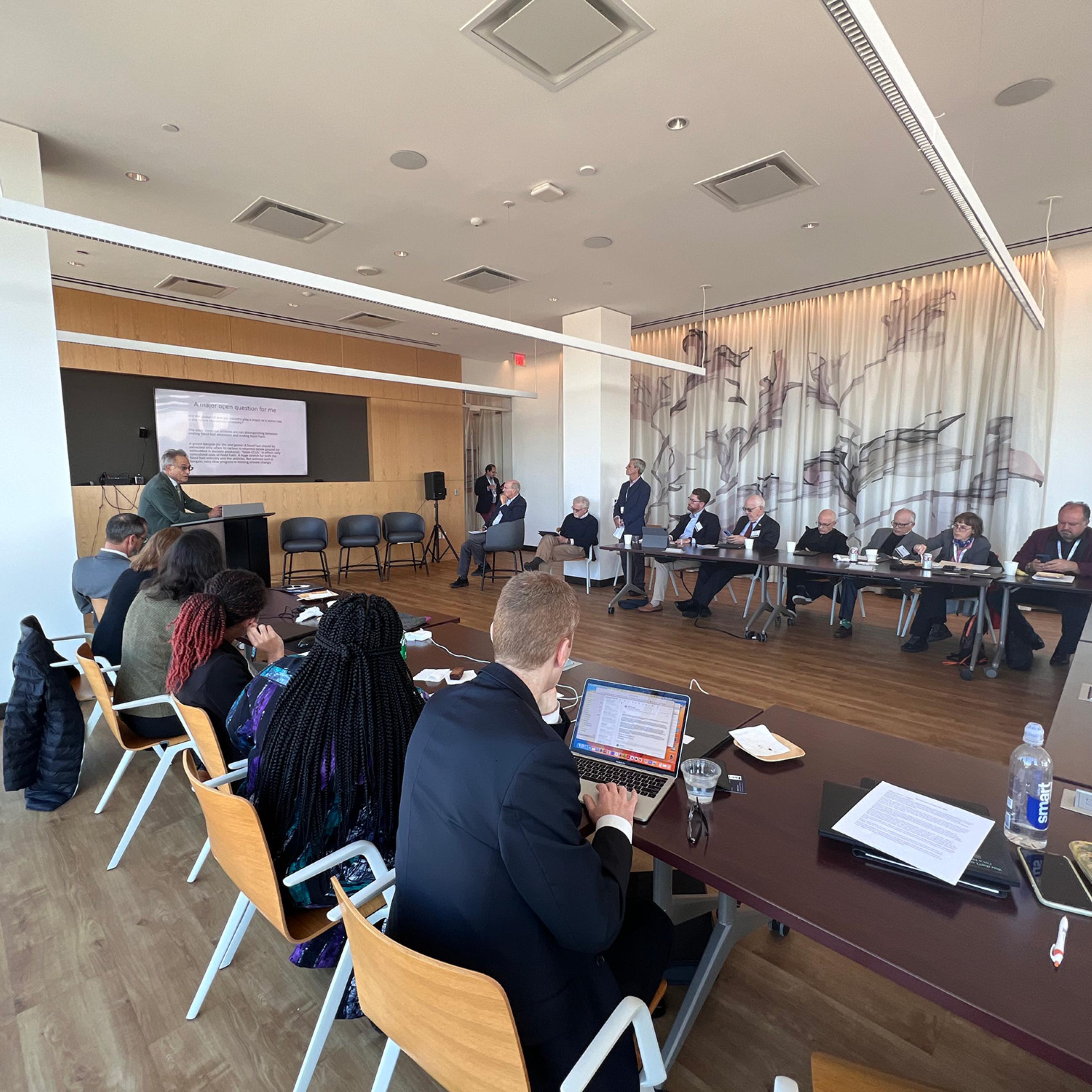

ESOC Conference Examines Causes and Effects of 1973-74 Oil Embargo
Thirty policy experts and scholars from the United States, Western Europe, and the Middle East met at the SPIA in D.C. space in early November for a conference on the 50th anniversary of OPEC’s 1973-74 oil embargo. The two-day gathering, presented by SPIA’s Empirical Studies of Conflict project, featured discussions and debates about the causes of the crisis, its consequences, and its enduring relevance to international politics and economics.
The conference began with an exploration of the history of the crisis and the structural forces that provided Arab oil producers with an opportunity to “weaponize” petroleum exports for political purposes. Participants discussed the intricate web of economic and political relations at play, including domestic policies in the United States that had left the country increasingly reliant on imported oil.
Discussions then shifted to the diverse strategies employed by various countries in response to the embargo, including policies of energy diversification. Participants evaluated the effectiveness of these strategies, considering both their immediate impact and their lasting influence not only on politics and economics but also on the environment as well.
A couple of points emerged: First, the Arab oil producers learned that placing an embargo on oil created costs that were greater than the benefits, particularly in terms of their relationship with the United States. Second, raising the price of oil led some countries to make more extensive use of other fossil fuels, chiefly coal, with its related climate impacts. Third, the economic impact of the oil crisis was so severe in some countries that it led to “authoritarian” politics and economics — the suspension of both democracy and market-oriented policies.
The attendees also examined the systemic geopolitical shifts and economic transformations resulting from the crisis. Highlighted were the creation and ramifications of the "petrodollar" system, along with the recognition that this era was marked by a significant shift in global economic power, reshaping future economic policies and international relationships. For example, the oil crisis indirectly fed into the future debt crises of the 1980s, as petrodollars were “recycled” to both industrial and developing countries.
Environmental policy emerged as another critical theme of the conference. In the discussions, participants noted that the oil crisis catalyzed a more profound focus on sustainable energy and innovation in energy technology. Additionally, the role of emerging technologies such as carbon capture and storage was highlighted, emphasizing their potential in shaping a future low-carbon economy.
The conference concluded with observations that the legacy of the 1973-74 oil crisis continues to significantly influence contemporary and future global politics and energy strategies. Emphasis was placed on the lessons learned from this period, especially in the context of current challenges such as energy security, climate change, and the transition toward sustainable energy sources. Overall, conference discussions underscored the illuminating role of historical analysis in informing contemporary responses to global challenges.






